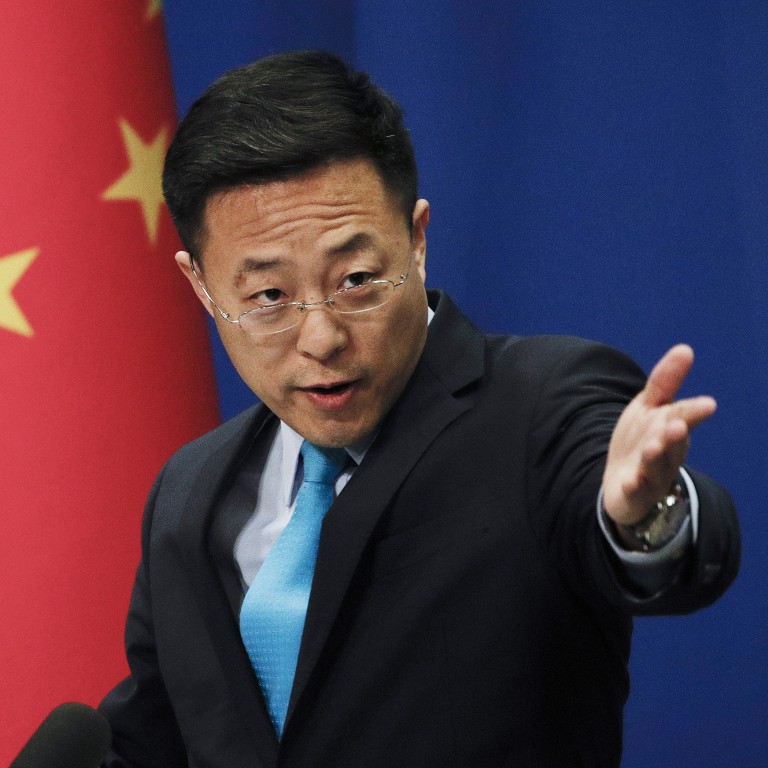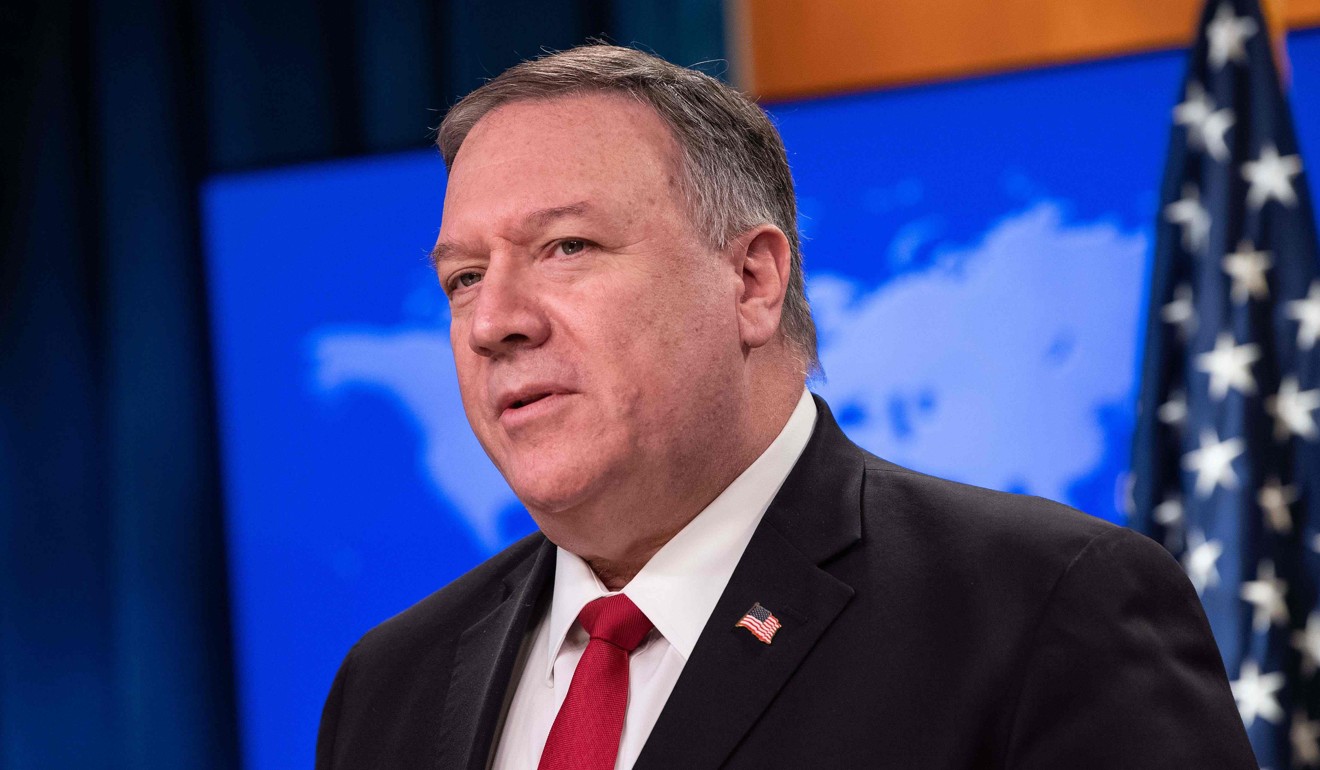
Chinese foreign ministry spokesman tweets claim US military brought coronavirus to Wuhan
- Zhao Lijian has urged his followers to share allegation from conspiracy website that the disease originated in United States
- It comes as senior US officials including President Donald Trump have sought to describe it as a ‘foreign virus’
Zhao urged his more than 287,000 followers in two tweets on Friday morning to widely share an allegation from a Canada-based conspiracy website that the coronavirus – which has become a global pandemic – originated in the US rather than the Wuhan seafood market that is thought to be its source.
“This is so astonishing that it changed many things I used to believe in,” he wrote on his official account.
A spokesman for the US embassy in Beijing declined to comment on Zhao’s tweets.
The incendiary and unverified claim from Zhao – a prolific tweeter promoted to deputy director general of the foreign ministry’s information department in February – came despite a widespread backlash to his first tweets on the subject late on Thursday.
“When did patient zero begin in the US? How many people are infected? What are the names of the hospitals? It might be the US Army who brought the epidemic to Wuhan,” Zhao wrote on the platform, which is inaccessible to most in China, on Thursday. “Be transparent! Make public your data! US owe us an explanation!”
The hashtag topic “Zhao Lijian sent out five consecutive tweets questioning the US” had been read more than 4.7 million times on Weibo, China’s Twitter, as of Friday at noon, with many praising the diplomat’s rhetoric.
As Washington has struggled to slow the spread of the virus in the United States, senior US officials including President Donald Trump have sought to describe it as a “foreign virus”, with US Secretary of State Mike Pompeo and Republican leaders going further to label it the “Wuhan virus” or “Chinese coronavirus”.
Zhao last week told reporters at a briefing that “no conclusion has been reached yet on the origin of the virus”, and that there were “ulterior motives” in labelling it as having originated in China. He cited remarks by Zhong Nanshan, the prominent Chinese respiratory expert who has become an authoritative voice on the outbreak, that the coronavirus may not have originated in China.
Pompeo argued last week that Washington had “pretty high confidence that we know where this began”, saying: “No less authority than the Chinese Communist Party said it came from Wuhan, so don’t take Mike Pompeo’s word for it.”

Amid an already tense strategic rivalry between the major powers, Beijing and Chinese state-backed media have been further emboldened in their criticism of the US, at first for not being sufficiently supportive of Chinese efforts to combat the virus, then for “stigmatising” the outbreak as originating in China, and now for Washington’s own missteps in handling the epidemic in the US.
Chinese diplomats, many of whom have taken to Twitter in recent months in Beijing’s push for greater international engagement, have actively defended Beijing’s policies to contain the outbreak in China on social media platforms.
High-profile China watchers including Bill Bishop, editor of the Sinocism newsletter, and James Palmer, senior editor at Foreign Policy, have said they were blocked by Zhao on Twitter after criticising his latest tweets about the coronavirus.
Asked in February about blocking people on Twitter, including China watcher Bonnie Glaser from the Centre for Strategic and International Studies, Zhao said: “If you don’t like someone’s remarks, you have the right to block him or her.”
Purchase the China AI Report 2020 brought to you by SCMP Research and enjoy a 20% discount (original price US$400). This 60-page all new intelligence report gives you first-hand insights and analysis into the latest industry developments and intelligence about China AI. Get exclusive access to our webinars for continuous learning, and interact with China AI executives in live Q&A. Offer valid until 31 March 2020.

